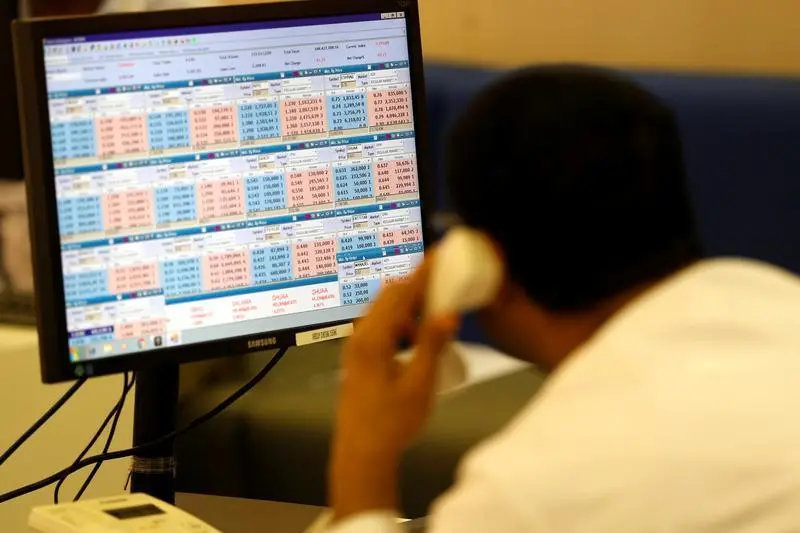PHOTO
Most stock markets in the Gulf ended lower on Tuesday, with sentiment weighed down by unease about rapidly rising interest rates, an escalation in the Ukraine war and falling oil prices.
Dubai's benchmark index gave up early gains to close 0.6% lower, with blue-chip developer Emaar Properties retreating 2.2%. The Dubai bourse was volatile as traders remained concerned about the global economy, said Ahmed Fouad, head of sales at Emporium Capital. "At the same time, the local economy was resilient and could help support the market."
The Abu Dhabi index fell 0.8%. Crude prices, a key catalyst for the Gulf's financial markets, dropped about 2%, extending the previous session's almost 2% decline, as recession fears and a flare-up in COVID-19 cases in China raised concerns over global demand.
Losses were limited, however, by a tight market and last week's decision by the Organization of the Petroleum Exporting Countries (OPEC) and allies including Russia, together known as OPEC+, to lower their output target by 2 million barrels per day.
Saudi Arabia's benchmark index fell 0.1%, hit by a 2.5% fall in the kingdom's biggest lender Saudi National Bank . However, Retal Urban Development Co rose 2% after the firm signed a sub-development agreement with the National Housing Company to develop 550 housing units.
In Qatar, the index dropped 1.2% as most of the stocks were in negative territory including petrochemical maker Industries Qatar, which tumbled 2.7%. According to Fouad, the Qatari bourse continued to decline on uncertainty in energy markets. "In this regard, natural gas prices could record new losses, pulling the stock market further down."
Outside the Gulf, Egypt's blue-chip index finished 0.8% lower. Egypt's annual urban consumer inflation rose to a slightly faster-than-expected 15% in September, its highest in almost four years, data from the country's statistics agency CAPMAS showed on Monday.
(Reporting by Ateeq Shariff in Bengaluru; Editing by Susan Fenton)




















